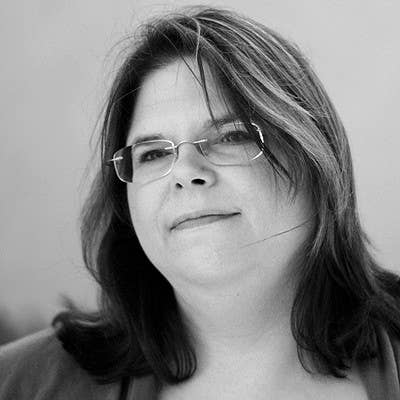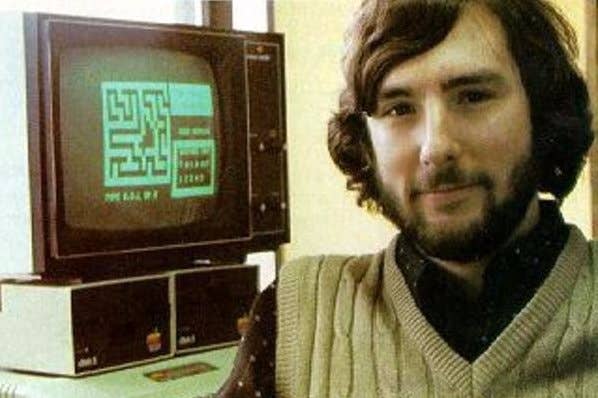Is ageism the only prejudice the industry isn't discussing?
David Mullich led a GDC panel that cast light on a new problem facing a traditionally young industry
In the last few years, discrimination and prejudice have become perhaps the most frequently and fervently debated topics in this industry. For the most part, the discussion has focused on gender, sexcuality and race, with both the games and the companies that make them under closer scrutiny than ever before. Most people would agree that this is a good sign, a positive trend, an indication that both the medium and the billion-dollar business constructed around it is striving for greater maturity. Not everyone, sadly, but most.
However, in a provocative session on the final day of GDC in San Francisco, David Mullich highlighted one area where prejudice, bias and alienation are going unrecognised, even at a time when similar issues occupy column inches on a daily basis.
Mullich is what we in the press often call "a veteran." Now 59 years old, he has been making games for 36 years, contributing to more than 60 different projects in both development and production roles over the course of his career. No matter when you started playing games, there's a good chance you were aware of a product to which Mullich made an important contribution. The Prisoner in 1980. Duck Tales in 1990. Heroes of Might & Magic 3 in 1999. Vampire: The Masquerade - Bloodlines in 2004.
"I haven't worked on a AAA game since 2004. It has become harder and harder for me to find jobs, and particularly after I got past 50"
David Mullich
In all that time, Mullich has been made laid off on ten occasions. That's a condition of working in the games industry, as any seasoned developer will know, but as Mullich reached his mid-Forties something changed. Six periods of redundancy took no more than one month to resolve, then, at the age of 47, finding work took four months. At 50, it took nine months. At 52, it was 14 months. And his most recent redundancy was followed by a 19 month search for another position.
"I haven't worked on a AAA game since 2004, over ten years ago," he said. "The reason for that, I thought, was that the economy has been poor, or that I've worked on platforms that are no longer as popular as they were. But I have found that, over the years, it has become harder and harder for me to find jobs, and particularly after I got past 50 years old."
The decisive moment arrived in August last year, when Vampire: The Masquerade - Bloodlines was named one of the best games of all time in a list published by the hugely popular Empire Magazine. On the same day, Mullich received a rejection letter from an unnamed company that wouldn't even grant him a first interview. He noted the irony in a post on Facebook, and was met with a deluge of responses.
"All of them telling me that the reason was due to my age. I thought, 'How on earth could it be due to my age?' I'm still creative. I still work crunch hours. I still love video games and roller coasters and Dr Who. My Facebook picture is of me in an Iron Man costume for chrissakes."

Still, Mullich couldn't entirely dispel the myriad other possible explanations floating around his head. He dug a little deeper, asking recruiters and interviewers for any and all feedback they could offer on their reasons for passing him by.
"The sort of thing I heard was, 'He seemed burned out.' Now, I'm as enthusiastic about making games as I was in my Twenties, but I have noticed that age has mostly taken its toll around my eyes, making them heavy. I can now look sleepy even when I'm alert.
"I also got the feedback that, 'He was too arrogant.' That was [from an interview] to be Head of Development at a studio, where I emphasised my years and years of experience producing games. And I realised that the person I was talking to had less experience than I did, and so I wondered if he felt threatened by that.
"I tried going after lower level producer positions, junior producer positions, and I was told there was concern that I was going to leave for a higher paying opportunity. For another position, I was told I didn't fit into their culture. Another person straight up told me, during the interview, that everyone here is 'young and energetic' - the person who told me that was 20 years younger than myself."
By that point, Mullich could no longer ignore the mounting evidence of prejudice based on age. The industry was lagging far behind its growing audience in terms of the diversity in its workforce, and the available data lent credence to that theory: according to the ESRB, Mullich said, 26 per cent of gamers are over 50; by contrast, the ESA put just 1 per cent of industry workers in the same age group. Hungry for more insight, he published an article laying out his concerns.
"There definitely is a problem that many people are feeling. That conversation starts today"
David Mullich
"It got more than 75 responses and dozens of emails, telling me things like, 'If you're looking for work over the age of 30, employers think there must be something wrong with you,' and 'What you achieved years ago is of minor interest compared to what you achieved in the last 12 months.'
"And then some people admitted to me their own thoughts about older workers: 'Old people don't make good crunchers,' 'Old people are not innovative,' and one younger person admitted that there was ageism at their company: 'As a young manager I have to admit that ageism is a thing here.'
"There definitely is a problem that many people are feeling," Mullich concluded. "That conversation starts today. And I'm here to let you know that it isn't going to be a pity party"
As a journalist, this kind of issue is difficult to represent in an objective manner. Even Mullich was inclined to seek alternate explanations at first, after all, and his subsequent findings were largely based on anecdotal research and common sense interpretation. However, there are many others within the industry highlighting similar problems, and not just the four people joining Mullich for his GDC panel.
Last month alone, Gamasutra published two articles that expressed very real concern about what the games industry has in store for the people that wish to dedicate their entire creative lives to working within it, and not just 15 or 20 years. At the age of just 37, Greg Wondra already feels like he's in the "twilight" of his career, drawing a parallel between the life of a game designer and that of a professional athlete.

"The best I've gotten in the past 7 months is a short term contract gig," Wondra said. "Who wants to pay a veteran's salary when there's younger, more naive workers in the wings?"
Similarly, Laralyn McWilliams pondered turning 50 years old in an industry with, "an uncomfortable relationship to age and experience" - qualities often eclipsed by the tendency to push new talent through the ranks as quickly as possible.
"I joked with my boyfriend that, 'The only thing worse than being a woman game designer is being a fifty-year-old woman game designer.' After the words came out of my mouth, I realised part of me wasn't joking. I debated whether to say in public that I'm 50 years old, and what effect that might have on my career."
Like Mullich, neither Wondra nor McWilliams conducted rigorous surveys, relying instead on their personal experiences and those of their friends and peers. But even without the raw data and comprehensive statistics to to back it all up, this is an issue that simply feels true. The modern games industry was established by creative young people, with a young audience in mind, little more than 40 years ago. When pioneering figures like Shigeru Miyamoto and Will Wright have yet to reach pensionable age, is it any wonder that the industry is ill prepared to accommodate talent from an age group with which it has never been closely associated - that is, until recently.
The industry is rightly proud of the new-found diversity within its growing audience. That trend has been a catalyst for sorely needed analysis of representations of sexuality, gender and ethnicity within its products, and the professional opportunities offered to those same groups. In becoming more inclusive, the industry will create better and richer products that will satisfy an even wider variety of interests and tastes - essentially, everybody wins.
"By next year, 35 per cent of the American workforce will be over the age of 50. That's a big number"
Jill Miller
And yet if Mullich is correct, age has been overlooked in this regard, despite the number of older gamers rising in tandem with the number of older developers in the industry's workforce. When Mullich had finished speaking, he introduced Jill Miller, a human resources specialist who has worked with games companies for almost as long as it has been possible to do so. Let's put it like this: she was employee no. 17 at Electronic Arts.
"In one of those companies, I was interviewing a job candidate and a couple of people wandered past," she said. "They peeked in, and I heard one of them to say to the other, 'Who is that old woman talking with Jill? I hope they're not gonna hire her.' Well, we did hire her, and that 'old woman' was 40 years old.
"So, the question is, what does old age look like in this industry?"
Quite understandably, Miller didn't have a photograph of the "old woman" who found herself the subject of her soon-to-be colleagues' scorn. But she did have a photograph of her own daughter at exactly the same age. Miller gestured to the image, and turned back to the crowd.
"And this is what old age looks like in the games industry. And 35, even 30, can be considered old in some companies. That's astonishing to me. By next year, 35 per cent of the American workforce will be over the age of 50. That's a big number, and it gets even bigger when you toss in the 40-somethings. It goes up to 41 per cent of the workforce. That's a huge part of the talent pool for any company to be ignoring. If you're trying to grow, if you're trying to innovate and compete for talent, you need those people.
"So, why are there so few [older workers] in the games industry, and why are the ones that are here not more successful? It's because their careers are being torpedoed."

